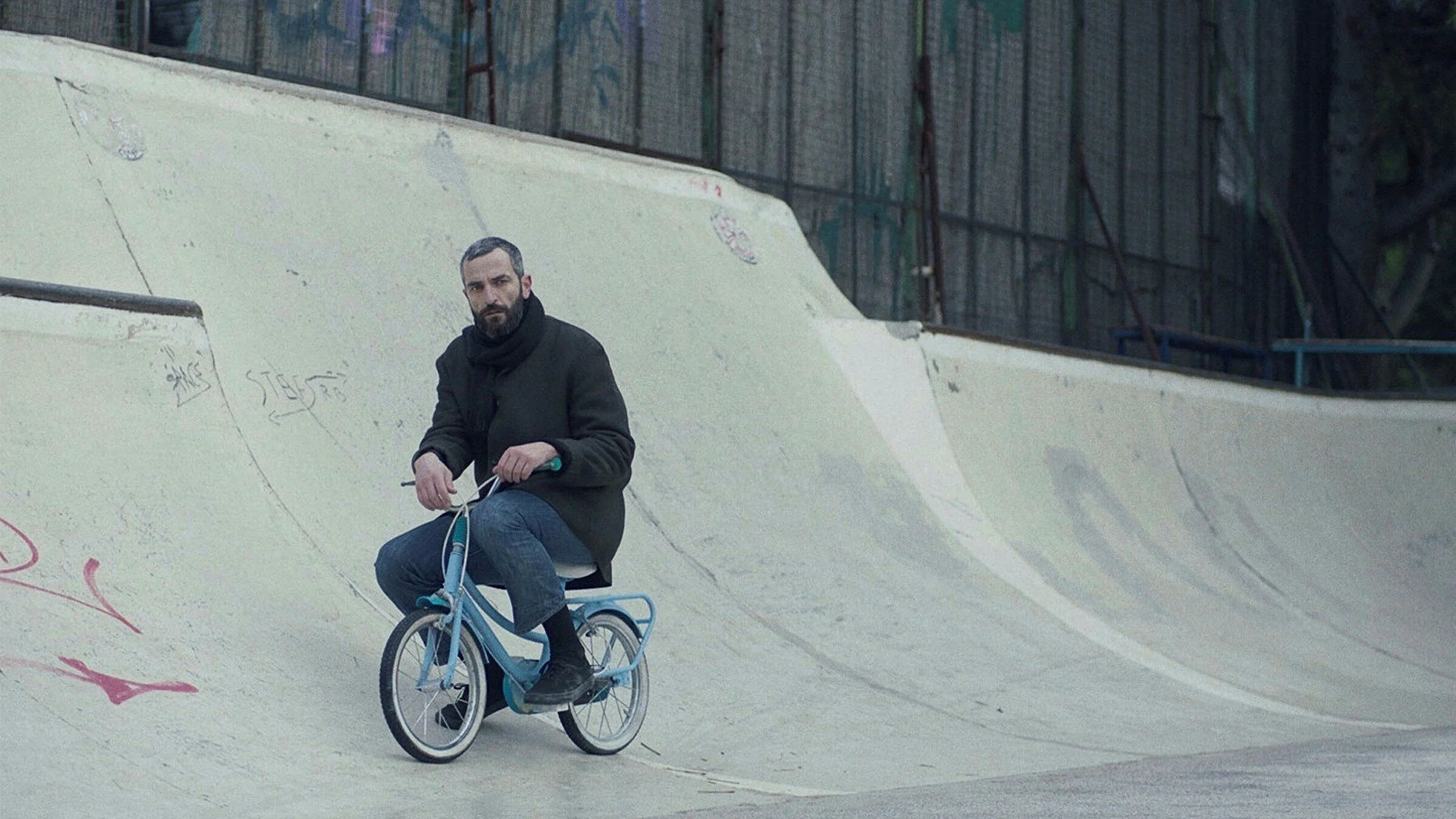Apples
An unusual work that can be read in more ways than one.
With Yorgos Lanthimos and Athina Rachel Tsangari leading the way, Greek cinema has in recent years become noted for films of striking originality. Often they have been both off-beat and provocative and have therefore presented something of a challenge to their audience. Now with Apples we have a new name to note in this context, that of Christos Nikou who is the director and also, with Stavros Raptis, the co-writer. Theirs is a film with a rather gentle tone and as such it contrasts with the films of Lanthimos and Tsangari, but its narrative is so unusual and so unorthodox that it too makes for demanding viewing.
Nikou's debut is directed with assurance and it certainly looks good as photographed in colour by Bartosz Swiniarski, but it is difficult to pin down what the aim of the film is meant to be. Screen centre - and present in almost every shot - is Aris Servetalis as a man who is first glimpsed in a state of anguish. But before that can be explained he falls victim to a contagion that is wide-spread in Athens and which is causing amnesia. We experience everything from his viewpoint and therefore know no more than the man can remember about himself which is virtually nothing. Thus, despite Servetalis having a sympathetic presence, the film is something of a blank slate, but that provides a richness of its own since it invites the viewer to ponder the implications of the tale.
Apples was first conceived a few years ago but seen today its audience is all the more likely to identify with the situation that the film describes because it carries certain parallels with the world's experience of Covid-19: there's the way in which the amnesiac condition grows in the population, the sympathy revealed for those who become its victims and the sense of isolation that results for those people. For these reasons what we see on screen links with today's world but, when it comes to a series of tests set up by the Disturbed Memory Department, we are likely to be reminded of the futuristic imaginings in the works of George Orwell. That applies even more strongly when in authoritarian mode the Department sets up a New Identity programme and imposes tasks that must be carried out as part of that programme.
A more personal side to the story develops when the man whose story we are following encounters by chance a female (Sofia Georgovassili) who shares his predicament but is a step or two ahead in following the set of orders imposed. Thanks to the players the way in which the relationship between these two develops is engaging, yet even so the main interest lies in speculating about their situation. Are we meant to regard them as individuals losing out by submitting to the dictates of the state? If so, are we to see those moments when they indulge in spontaneous actions as the only way in which they can truly become themselves? This could well be regarded as the potential theme of the piece, but ultimately it feels less than fully developed. Similarly issues about memory remain little more than incidental although in this connection musical references are intriguingly included - they range from a failure to link 'Jingle Bells' with Christmas to a positive moment about recovering the ability to dance, a scene that features 'Let's Twist Again'. The film does achieve a closure of sorts but it is less meaningful than one had hoped given the range of possibilities inherent in the storyline. Even so, the film has a tone all its own and that makes it a distinctive first feature.
Original title: Mila.
MANSEL STIMPSON
Cast: Aris Servetalis, Sofia Georgovassili, Anna Kalaitzidou, Argyris Bakirtzis, Kostas Laskos, Babis Makridis, Kimon Fioretas, Costas Xikominos, Alexandra Aidini.
Dir Christos Nikou, Pro Christos Nikou, Aris Dagios, Iraklis Mavroidis, Angelos Venetis and Mariusz Wlodarski, Ex Pro Cate Blanchett, Coco Francini, Nikos Smpiliris and Andrew Upton, Screenplay Christos Nikou and Stavros Raptis, Ph Bartosz Swiniarski, Art Dir Efi Birba, Ed Giorgos Zafeiris, Music Alexander Voulgaris, Costumes Dimitra Liakoura.
Boo Productions/Lava Films/Perfo Production/Dirty Films-Curzon Artificial Eye.
90 mins. Greece/Poland/Slovenia. 2020. Rel: 7 May 2021. Available on Curzon Home Cinema. Cert. 12A.


